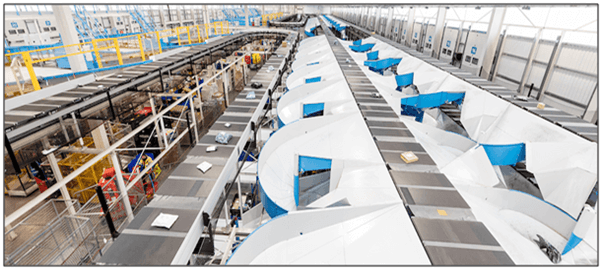Digital technologies have become increasingly common in the logistics industry. They enable logistics companies to link their system and information together. More and more companies are willing to invest more resources in digital technologies. Digital technologies can also enable humans to complete their jobs in efficient ways, and thus improve customer satisfaction. Some companies are looking for solutions to eliminate repeat movements of workers and lower the risk of safety. Logistics companies are to implementing digital technologies for effective route planning and shorter lead time of distribution. This article discusses the various digital technologies that are effective in integrating the logistics operations.

Table of Contents
Internet of Things (IoT) Technology
The Internet of things (IoT) is a network to combine digital machines, computer, software, and system and allow devices to communicate at the same frequency to complete the instruction. IoT allows companies to have real-time data exchange and processing, it can help companies track the real-time status of goods to gain better business opportunities. Logistics that apply for IoT benefit on reduce waste, improve speed, and reduce logistics costs. The application of IoT is to trace assets, record goods of movement, and keep track of process documents through digitalization. The importance of IoT for integrated logistics is to predict, manage and improve either process of logistics. With IoT companies are able to review the status of assets, process flow, and even real-time reports with one click on the mobile phone or computer.
Warehouse Management System (WMS)
A warehouse management system (WMS) is important software to cover the entire logistics’ daily operation. It is software designed to trace the movement of the item when it receives in and supplies out from inventory. WMS captures the real-time inventory information, to provide visibility of inventory information and manage fulfillment for the entire logistics operation. A company that develops WMS is allow them to opera with digital technologies, such as automated guided vehicles (AGV) and Radio frequency identification (RFID) technology. When using digital technologies with WMS, the WMS can collect and transmit real-time information to the user and allow the user to assign a location in the warehouse by remoted. The benefits of WMS with digital technologies can improve the receiving process, reduce the time of order fulfillment, reduce waste of motion, eliminate waste of labor costs, reduce the error caused by humans, increase warehouse productivity, improve inventory accuracy, and optimize utilization of warehouse space.

Artificial intelligence (AI) Technology
Artificial intelligence (AI) is an evolution of computers that allows machines to imitate the movement of humans, then replace humans to complete the repeated movement. With AI and machine learning, some of the laborious tasks that used to be done by humans can perform by robots, such as put-away of goods, stock tracking, order picking, inventory cycle count, and product sorting. Developing AI technologies requires a high-cost investment, but the return on investment is more than expected. Production with AI technologies, allow the company to run production 24 hours, to not only increase productivity and ensure the safety of the worker. In fact, with AI technologies, waste of motion can be eliminated and the quality of products can a huge improvement.

3D Printing Technology
3D printing technology allows companies to build their own components to fulfill their need. 3D printing technology is an additive process whereby layers of materials are built up to create a 3D part. It allows manufacturers, businesses, or personnel to design and print the exact parts and products by using resin, plastics, composite materials, metal, and even human tissues. Complete a 3D printing model normally will take a few minutes or days, it is depending on the size, speed, and resolution of materials required. As the advantages of 3D printing technology, it allows logistics providers to apply additional services to their customers thereby increasing customer satisfaction. With 3D printing technology, companies can maximize the customize service to their buyer. Compared with traditional ways, 3D printing technology helps companies to eliminate the resourcing for suppliers via building it themselves.
RFID and Barcode Technology
Radio Frequency Identification (RFID) and Barcode technology capture digital data information through barcode or QR labels or RFID tags via radio waves. Now more and more companies choose RFID to replace traditional warehouse activities, such as labeling, storing, and location-allocation. Upon receiving warehouse worker will paste an RFID tag or barcode on the product, which allows the next user can early to get the product’s information early g the RFID tag or barcode. Information is stored in an RFID tag or barcode and attached to products. An antenna recognizes the signal of a nearby RFID tag and receives the information stored on the tag. Warehouse workers can put away the products by scanning the RFID tag paste on the products. RFID and barcode technology brings a huge improvement to the warehouse via speed of receiving, identifying product information, and efficiencies of product put-away. RFID and barcode technologies provide inventory accuracy, and efficiency of inventory control, speed up the process of pulling process and improve warehouse inboard, outboard, and storage processes.
The full content is only visible to SIPMM members
Already a member? Please Login to continue reading.

